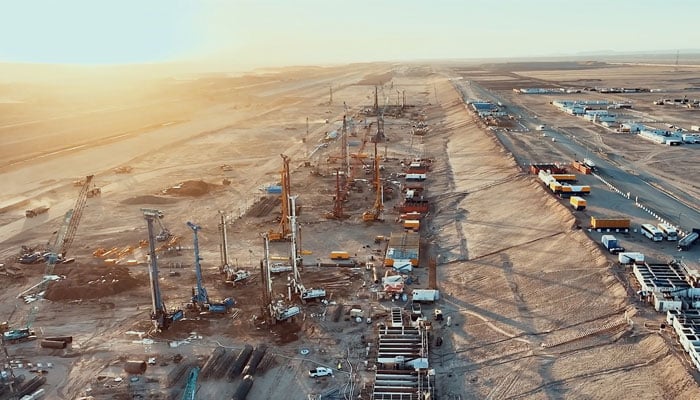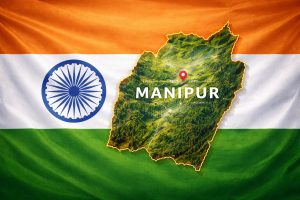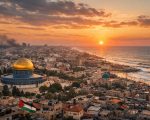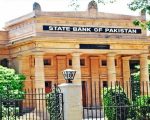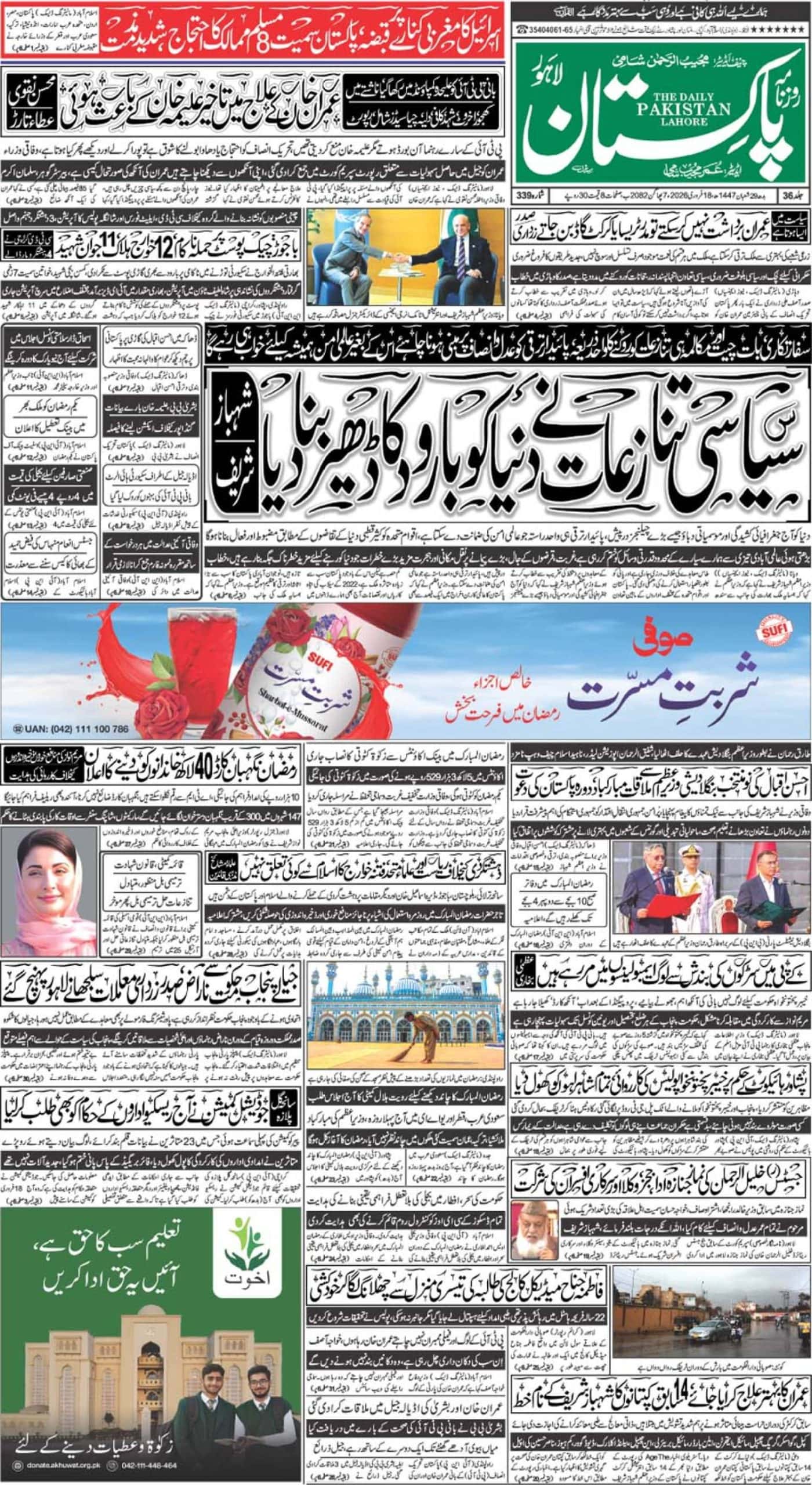Written by: Ayesha Sohail
The project of NEOM City, launched in 2017, is a part of Saudi Prince Mohammed bin Salman’s Vision 2030. The initial three letters, neo, meaning new, and M, stands for the Arabic word mustaqbal, meaning future. The project’s total cost is estimated to be US$500 billion, and the major portion is set to be completed by 2030. The project aims to diversify the Kingdom’s economy and reduce its dependency on oil. This insight attempts to analyse the potential success of the NEOM project and its prospects for Pakistan.
NEOM is divided into four key regions: The Line, Oxagon, Trojena, and Sindalah. The Line is a 170 km smart city planned to accommodate nine million people. Oxagon is designed as a port city at the crossroads of three continents: Asia, Africa and Europe. Its primary purpose is to connect ships aimed at the Suez Canal. Trojena is 50 km from the Gulf of Aqaba. This region got global attention when it declared the winning bid to organise the Asian Winter Games 2029. Sindalah aspires to be the top luxury island.
On 23 October 2023, the NEOM Investment Fund (NIF) was announced. It is a strategic investment arm to finance the development and build out of NEOM’s 14 sectors, which range from energy, water and food to health, tourism and education. NIF will develop joint partnerships and schemes with big global businesses and stakeholders to expand Saudi Arabia’s economic production of services and goods. Additionally, it will help bring together sustainable models for the state’s environmental, health, and urban development. As of May 2024, NEOM’s yearly revenue increased to US$750 million, raising US$2.7 billion in funds.
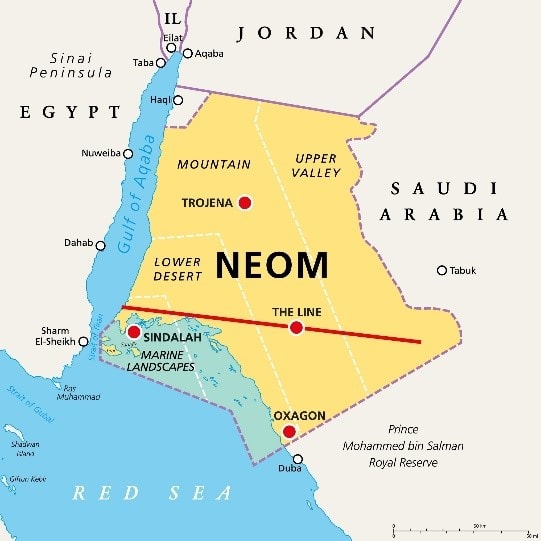
Source: Center of Excellence for NEOM, Research at KAUST
On the other hand, several experts are sceptical about the aspirations of the NEOM city project. Initially, Saudi Arabia intended to finish essential sectors of the mega project by 2020 but still needs to achieve the target. In July 2022, merely two buildings were built, and most of the project area was a desert. By 2024, the initiative was stated to have considerably been scaled back from its initial plan. According to the latest Bloomberg report, the initiative is expected to get 20% less than its target funding. However, Faisal F. Al-Ibrahim, the Saudi Economic Minister, denied this. He emphasised that the NEOM project would be carried out according to the plan.
According to recent Strategic Gears research, the NEOM project is progressing rapidly. The researchers discovered that non-oil revenue currently makes up around one-third of expenditures, which has increased significantly since 2016. Meanwhile, Saudi Arabia’s overall revenue from non-oil sources has nearly doubled. It was less than 20% between 1970 and 2014, but currently, non-oil revenue makes up about 40%.
Pakistan and Saudi Arabia have enjoyed brotherly ties from the start. More than two million Pakistani expatriates reside in Saudi Arabia. Both states have supported one another economically and diplomatically in several events. Therefore, Pakistan is in an appropriate position to take advantage of the opportunities the NEOM project offers.
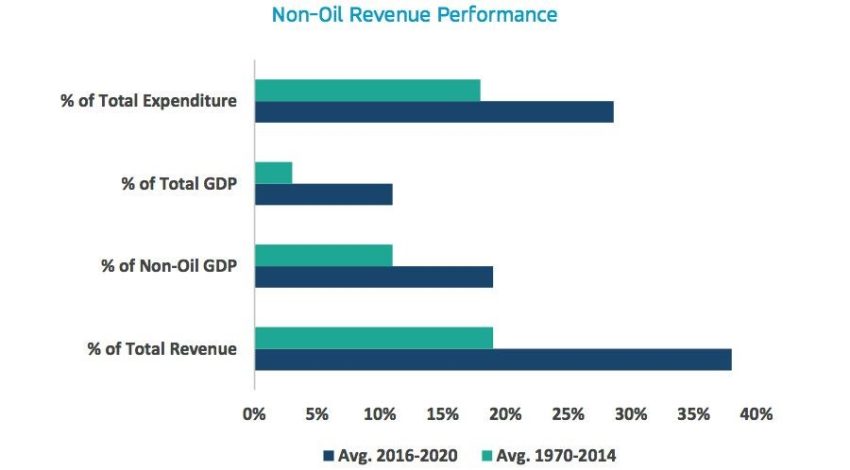
Source: Strategic Gears Management Consultancy
Pakistan’s skilled workforce is a potential catalyst for Saudi Arabia’s NEOM project. The Ministry of Overseas Pakistanis and Human Resource Development intends to dedicate a separate quota for the mega project’s skilled and semi-skilled Pakistani workforce. As of May 2024, twenty Pakistani employees out of eighty-seven representing six South Asian states presently work and live in NEOM.
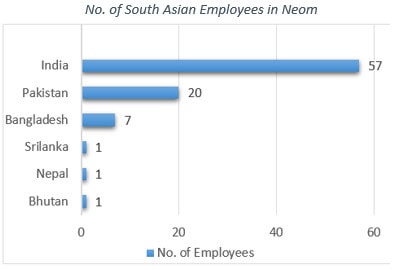
Source: Self Extract
| NEOM presents new avenues of Saudi-Pak cooperation in the Economy, Human Resources, Education, Engineering and Sports. |
NEOM’s vision demands a diverse skill set encompassing technology, engineering, urban planning, and sustainability. With its burgeoning youth population (64% of the total population), Pakistan is well-positioned to meet these demands. A substantial segment of this youth population has higher education qualifications, and the country boasts a thriving IT industry with a strong talent pool in software development, cybersecurity and data analytics. Pakistan produces graduates in civil, mechanical, electrical, and chemical engineering and has a rich history of large-scale infrastructure projects, providing a skilled construction management and urban planning workforce. Moreover, Pakistan’s English language proficiency, particularly among the educated youth, is relatively high (57% of the total population is English-speaking), making them suitable candidates for the NEOM project and a beacon of hope for its future.
Pakistan’s chief engineering consultancy, National Engineering Services Pakistan (NESPAK), has been awarded the flagship NEOM project in Saudi Arabia. The acting Managing Director of NESPAK, Mr Zargham Eshaq Khan, announced the landmark. The project highlights NEOM’s energy sector and has a 3.7 billion Pak Rupees budget, equal to 46.5 million Saudi Riyals.
The significant pillar of NEOM is the labour market. CEO of the NEOM project, Mr Nadhmi Al-Nasr, stated that the mega project has approximately 140,000 construction workers working 24/7, and the number of project workers is expected to increase to 200,000 in 2025. Deploying Pakistani skilled labour to NEOM can yield substantial benefits for both countries. It offers a significant employment opportunity for Pakistan, reducing unemployment rates and increasing remittances. Moreover, it can enhance the country’s international image as a provider of skilled human capital. For Saudi Arabia, Pakistani workers can contribute to the rapid development of NEOM by providing a cost-effective yet skilled labour force. This can lead to a significant boost in Pakistan’s economy and international standing.
The NEOM city has announced the NEOM Sports Club, which will attain the region’s extensive sports objectives. Meanwhile, a leading sports goods manufacturer, Pakistan, can do well in the emerging Saudi Arabian sports market. This presents a unique opportunity for Pakistan’s sports industry to expand its reach and contribute to the development of the NEOM Sports Club, thereby strengthening the ties between the two countries.
The potential benefits from the NEOM project are substantial, but challenges such as visa regulations, language barriers and labour laws need to be addressed. To maximise the potential of Saudi-Pak collaboration, both countries should invest in capacity building and language training, streamline visa processes for skilled Pakistani workers, and establish joint training programs to bridge skill gaps.
The potential benefits of the NEOM project are substantial and exciting. Pakistan’s skilled workforce presents a promising opportunity to contribute to the realisation of Saudi Arabia’s ambitious NEOM project. This collaboration can serve as a model for regional cooperation and human capital development, and its potential is genuinely thrilling.
The writer can be reached at raayeshasohail@ndu.edu.pk

